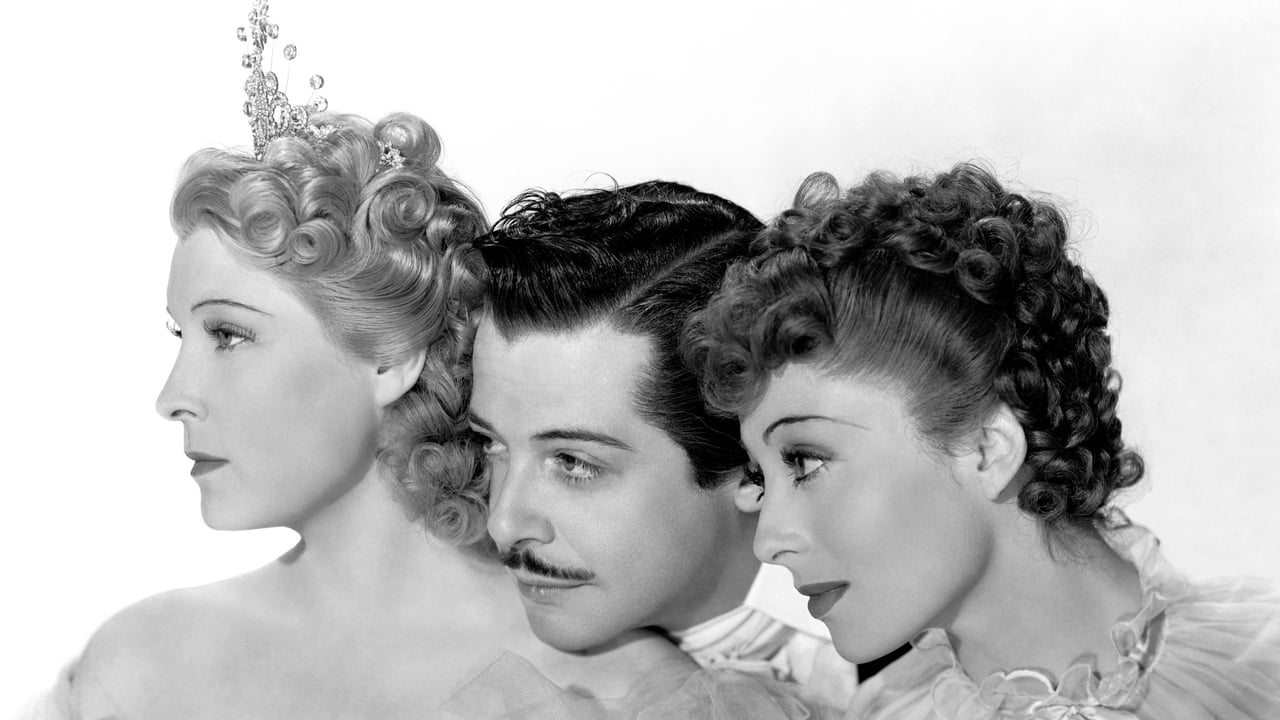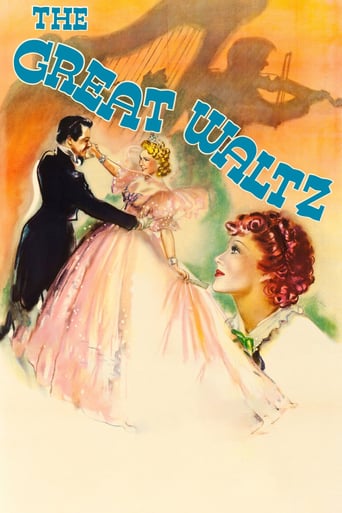

I am only giving this movie a 1 for the great cast, though I can't imagine what any of them were thinking. This movie was horrible
... View MoreI wanted to like it more than I actually did... But much of the humor totally escaped me and I walked out only mildly impressed.
... View MoreMostly, the movie is committed to the value of a good time.
... View MoreI think this is a new genre that they're all sort of working their way through it and haven't got all the kinks worked out yet but it's a genre that works for me.
... View MoreDirected by Julien Duvivier, with a screenplay by Samuel Hoffenstein and Walter Reisch that was based on a story by Gottfried Reinhardt, this fictionalized biography-drama of Vienna's Johann 'Schani' Strauss II features Fernand Gravet (aka Gravey) as the prolific composer, who is perhaps best known for his waltz The Blue Danube aka "On the Beautiful Blue Danube".Several of Strauss's compositions, waltzes and operas, were given lyrics by Oscar Hammerstein II for Gravet and/or Miliza Korjus as opera singer Carla Donner, from Budapest, to perform. The operatic Korjus earned a Best Supporting Actress Academy Award nomination for her film debut which was also (effectively) her only movie role. Luise Rainer plays Strauss's delicate yet not too fragile wife Poldi (née Vogelhuber); she apparently tolerated her husband's indiscretions like his affair with Carla, depicted in this film. Cinematographer Joseph Ruttenberg won his first Oscar (on his first nomination) for his swirling camera work and Tom Held's Editing was also nominated.Quirky Hugh Herbert plays Strauss's music publisher Julius Hofbauer, Lionel Atwill plays Count Anton 'Tony' Hohenfried who covets Carla, Leonid Kinskey plays Dudelman, Herman Bing plays the proprietor Otto Dommayer who first gave Strauss a chance to play his music in public, Alma Kruger plays Strauss's mother (Poldi's understanding mother-in-law), Henry Hull plays Franz Josef, who would become Emperor of Austria after the uprising during which this film's story shows he'd encountered Strauss, Sig Rumann plays the banker who fires the future composer at the beginning of the story, and Christian Rub plays the coachman who (in this movie, at least) helped Johann and Carla compose the recognizable "Tales from the Vienna Woods", also during the Austrian revolution.
... View MoreBeautiful music interwoven throughout a standard script. The Vienesse Teardrop does well enough in her stock role of the long suffering put upon wife and as always she cries beautifully but Fernand Gravey is flat in the lead. The kind of picture where Strauss can compose Tales from the Vienna Woods just by taking a carriage ride through them with Miliza Korjus happily trilling away and suddenly without any struggle whatsoever have the whole thing ready for a performance at the end of said ride! A great deal of Strauss' music is here so that is a tremendous inducement but there is also quite a bit of operatic singing, if that's your cup of tea great, all others beware.
... View MoreThis is my all-time favorite musical. Second in line are the Busby Berkeley-Warner Bros. flicks of the '30s.A couple of tin-ear critics decried the arrangements and/or the Korjus singing. Fie on them and their errant poor taste.One critic, edwa green, I think, wondered why she never made any more movies. If he had done a little research he would have found out. Jeanette MacDonald was the big MGM draw and when she realized how successful Korjus was in this movie she told the studio if they used Korjus any more, she and her box office bucks would walk out.Tensaip (that should be minus the 'i') spent his writing time paralleling the story with Hitler's rise, a review that came complete with more than a hint of anti-Semitism. If the Jews bother you that much, scrap your teevee set.Gleywong, or something like that- probably grey wrong - decried Korjus with stupid digs at her singing. A few other critics had hissy fits because the story was more fiction than non. Wanna find out about Strauss? Read a book, or have someone read it to you.Got all that off my chest. I would like to ask one critic where he got a copy of the film. TCM doesn't even have it but, bless their hearts, they have scheduled it often.Now - Korjus is gorgeous in looks and vocally. Her singing was the highlight of the beautiful film. The music (arrangements) were pure beauty, the dance scenes unparalleled, and I even thoroughly enjoyed the Spike Jones-like music at the beginning.Gravet was handsome and convincing, Rainer was, as usual, cute and convincing. One reviewer was bothered by her. Obviously, he knows more than the folks who awarded her a couple of Oscars.To sum it up, and to quote Tony the Tiger --- "The Great Waltz" truly is grrreeeaaat. Okay critics, eat your cereal (use a fork, not a spoon) and be quiet.
... View MoreThis movie is extraordinarily elegant in all regards. Most particularly we can thank the high fidelity of movies from that era for preserving such a glorious voice as that of Miliza Korjus. Other recording media of the time could never reveal the incredible quality of her voice. Korjus performs at a level that contemporary high sopranos can only aspire to. Without this movie, we would never know what she really sounded like. Her voice is perfectly suited to the works of Johann Strauss II, on whose life this movie is based, Hollywood style of course.The music, setting, characters, lyrics, theme, and photography are superb. Lyrics are by Oscar Hammerstein II no less. This movie is nothing short of breathtaking. You would have to be tone deaf and blind to not adore this movie.Strauss suffers under the choice between his beautiful, understanding wife and the vivacious intoxication of the diva, Carla Donner (Korjus). For any man who truly appreciates her voice, it would indeed be an onerous choice. Luise Rainer plays Strauss' wife, Pauldi, likewise intoxicating in her lovely softness and a match for the other woman.
... View More